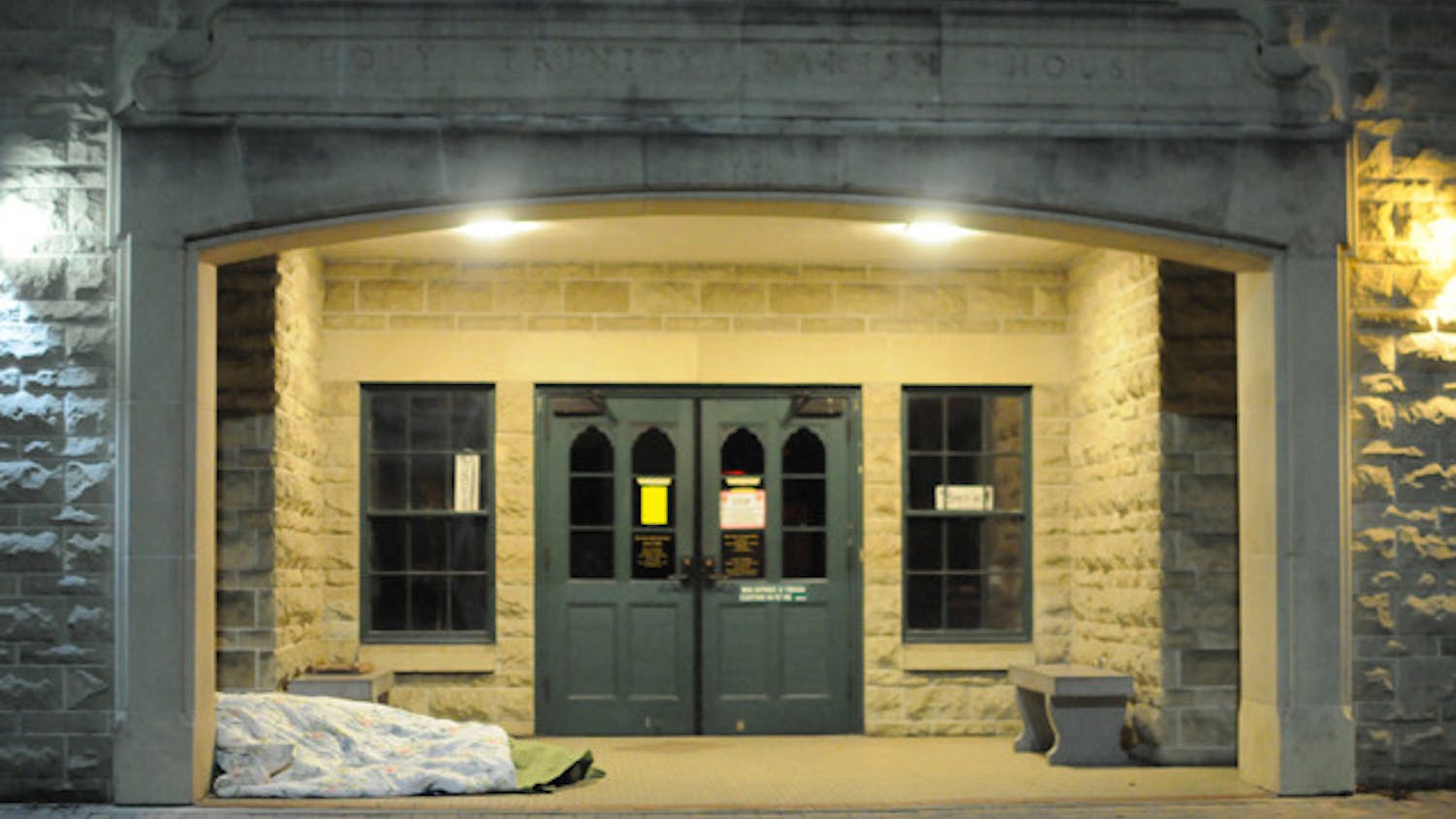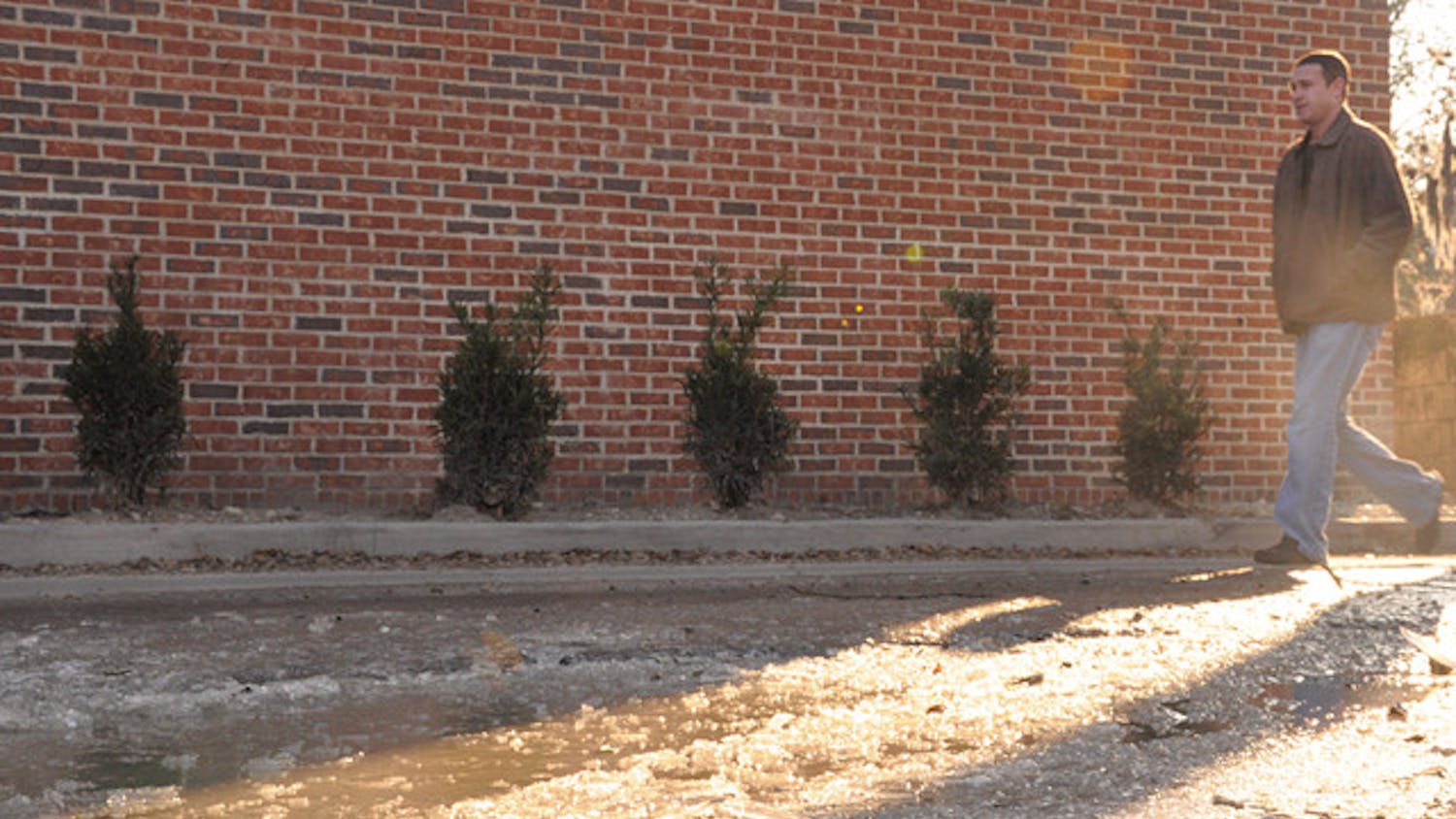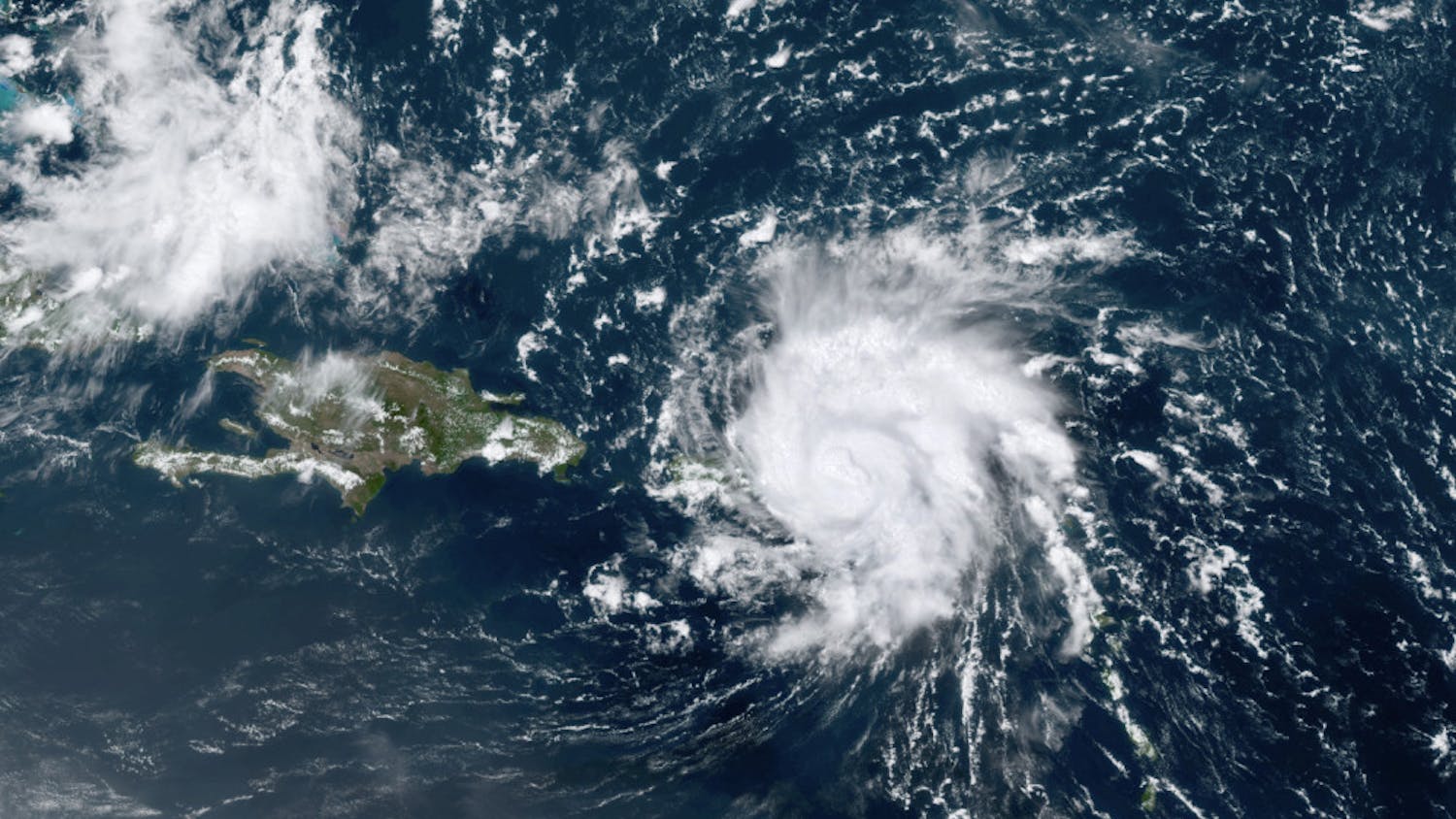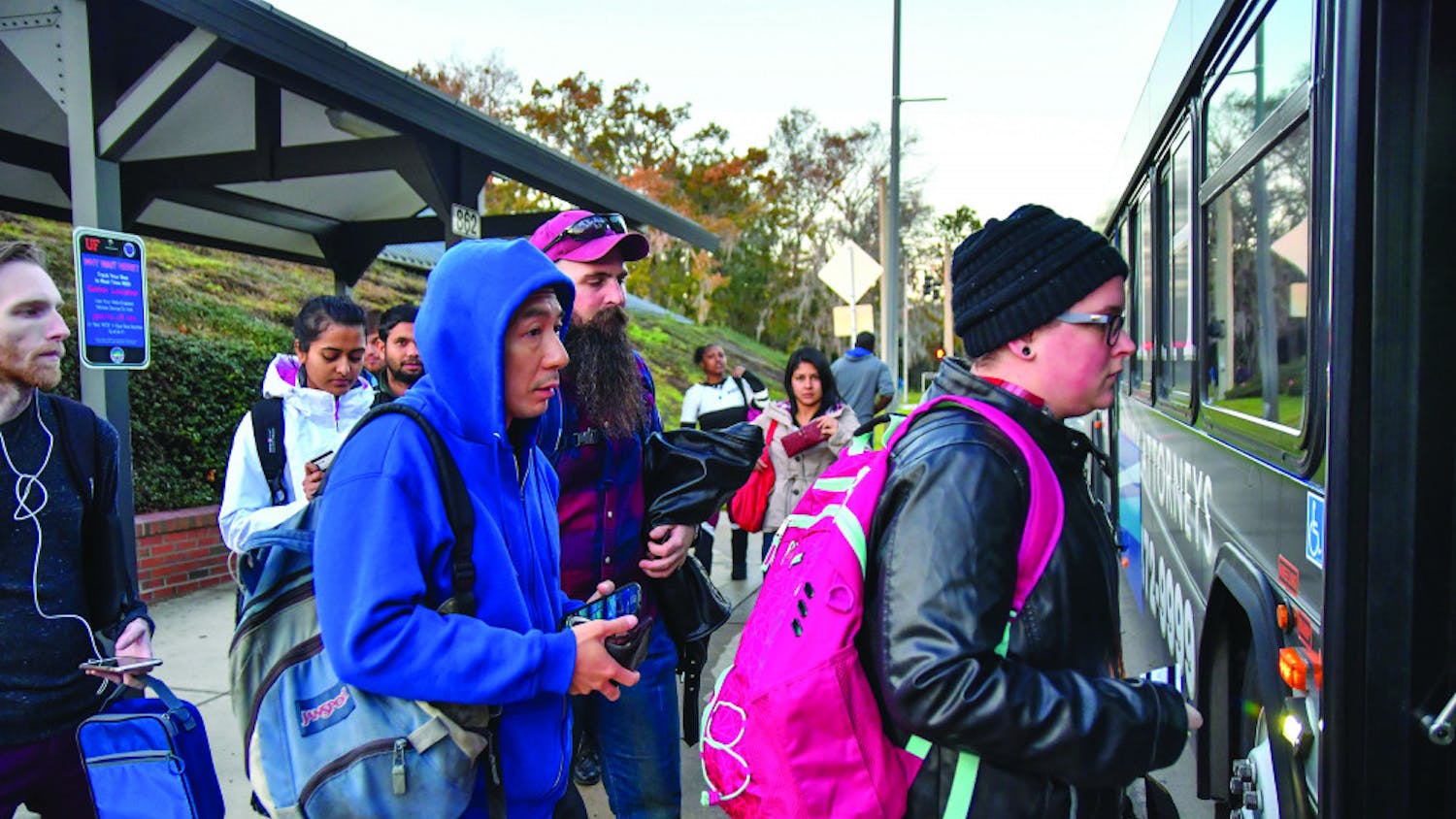Severe weather has commenced again as hurricane season comes to an end.
Temperatures in Gainesville reached 32 degrees Fahrenheit Tuesday, and are expected to drop further throughout December. A storm impacted Sable Chase neighborhood and Springtree neighborhood on NW 39th Avenue and 34th Street in North Gainesville when high winds toppled trees and caused damage to cars and houses around 5:30 a.m. Monday morning.
To help residents get through inclement weather circumstances, Gainesville has programs and mechanisms to prepare people and keep them safe.
During periods of cold weather, Alachua County Emergency Management recommends to stay indoors and use safe heating sources. Those using space heaters should remain aware of fire dangers and keep them away from furniture and flammable materials. Fuel-burning heating devices should not be used, as they can release carbon monoxide. At least one carbon monoxide detector should be installed in the home.
Outside, the Alachua County Emergency Management recommends wearing multiple layers of warm, loose-fitting clothing and remaining in dry, wind-protected areas.
It’s also recommended to drink plenty of non-alcoholic fluids and eat high-caloric foods.
The City of Gainesville implemented the Cold Night Shelter program to assist homeless people. The program is hosted by St. Francis House, a homeless shelter and soup kitchen, GRACE Marketplace, a homeless resource center and The Empowerment Center, which is the campus for Project YouthBuild, a program for young adults who dropped out of school. The CNS program will run on nights when temperatures drop below 45 degrees F.
Reina Saco, county commissioner at large, said the shelters have a limited number of people they can take in for the night to ensure social distancing is followed.
“The first cold weather night that we had a couple weeks ago, not many folks showed up anyway,” Saco said. “So that was a bit of a blessing in disguise.”
Rossana Passaniti, a spokesperson for the city of Gainesville, said the CNS program can be used by anyone who doesn’t have heat during cold nights. The more than 20-year-old program has also been used for other inclement weather situations which might displace or endanger residents.
David Arreola, District 3 City Commissioner, said because Gainesville Regional Utilities is publicly owned, the city can better prepare for and respond to weather emergencies.
“Whenever there's inclement weather coming through, and powerlines are involved, and there's dangerous conditions, we have immediate responses from any department that might be needed,” Arreola said.
In the case of an emergency, Gainesville residents can use the 311 GNV app to alert people or get immediate help.
Arreola said if the state views a storm to be strong enough, they operate shelters in conjunction with Alachua County. He said the city’s alert systems allow for immediate responses to weather emergencies.
The Regional Transit System stops operating when winds hit 35 miles per hour. Routes may be detoured due to debris in roadways or closed roadways. The RTS website or app can be used to determine which routes are running.
In case of high winds that could lead to tornado watches or warning, the Alachua County Emergency Management department has outlined safety precautions for multiple scenarios. Information on what to do about the threat from inside a home, in a vehicle, in open country and in other situations is available on its website.
Before Tropical Storm Eta, Passaniti said the city warned people to move any outdoor items indoors, including patio furniture, trampolines and plant pots. High winds can blow these items away and cause damage to property.
Those caught in a tornado should monitor the National Oceanic and Atmospheric Administration weather radio for updates and look for appropriate shelter, according to the city’s website.
Correction: This article has been updated to reflect that RTS is the Regional Transit System. A previous version reported otherwise.
Contact Anna at awilder@alligator.org. Follow her on Twitter @Anna_wilderr.

Anna Wilder is a second-year journalism major and the criminal justice reporter. She's from Melbourne, Florida, and she enjoys being outdoors or playing the viola when she's not writing.








